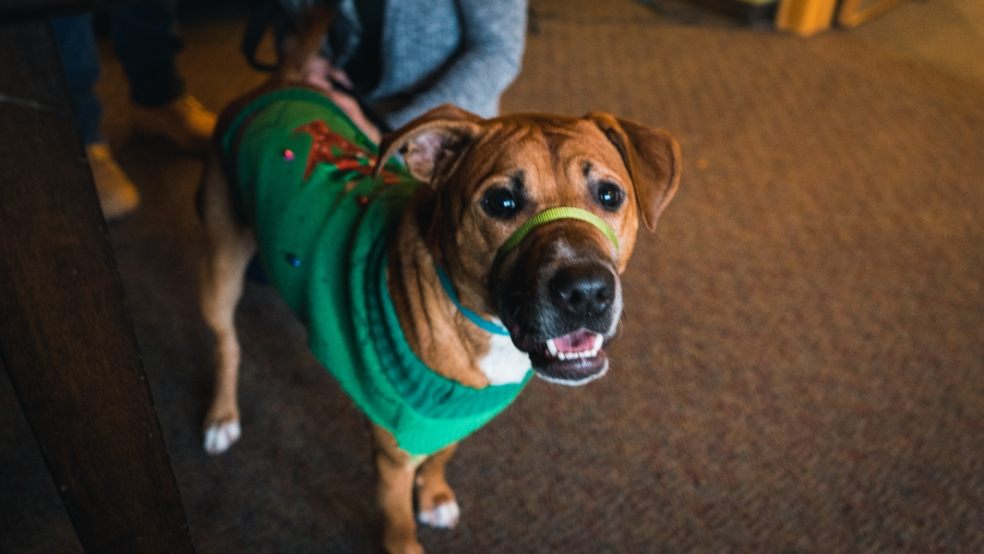
Think your dog can only get fleas in the summer?
Switching on the central heating creates the perfect breeding ground for winter parasites — and it’s not just your pets who could suffer.
The Itch-Festation Report from dog food company tails.com has found that the warmer the temperature, the faster flea eggs develop into adults. At a cool 13C, it could take a flea egg 140 days to hatch, but when temperatures hit the mid-twenties (or when we turn the central heating on), it can take as little as 22 days.
Fleas are much more likely to thrive in a warm and humid environment and once the outside temperature, they start to make their way inside, hiding in pet bedding, human bedding, and on carpets and soft furnishings.
Tails.com Head Vet Sean McCormack warns that missed flea treatments in lockdown could be leading to a bigger problem and has the following advice for pet owners suffering. Follow these tips to help avoid a nasty infestation:
“Often by the time you notice adult fleas there may already be hundreds of eggs and larvae developing in your home on bedding, soft furnishings, carpets, and flooring – it’s the perfect environment. It is crucial to treat the home environment at the same time as your dog to reduce the chances of another infestation several weeks later.
“Vacuuming the entire household, discarding the contents of the vacuum cleaner immediately in a sealed plastic bag, washing bedding on a high heat, and using a spray in the home are vital to prevent reoccurrence. If your pet spends a lot of time in your car, it’s also worth giving that a good clean too.”
Lockdown was the perfect breeding ground for fleas. We enjoyed longer periods of time outdoors with our pets, and vets across the nation were understandably prioritising emergency service treatments over routine flea and worming appointments.
The risk of flea eggs being carried into our homes was very high. And once hatched, those fleas get busy laying up to 50 eggs every single day.
After just 38 days there could be 74,132 fleas living in your home. The total of blood sucked by this number of fleas amounts to 516ml just over the average size of a bottle of pop.
And in just 43 days over seven pints of blood will be sucked by 514,332 fleas. Fast forward to 55 days an astonishing 5,412,732 fleas could be living in your home, slurping 37.7 litres of blood.
The flea population has spiked in recent years, with warm weather creating the perfect breeding ground. The warmer the weather, the faster flea eggs develop into adults. The report found that at 13C it could take a flea egg 140 days to hatch, but when temperatures hit the mid-twenties (or when we turn the central heating on), it can take as little as 22 days.
Tails.com Head Vet Sean McCormack warns that missed flea treatments in lockdown could be leading to a bigger problem and has the following advice for pet owners suffering:
“There are many products on the market for treating fleas, some more effective than others. Some products only kill or repel fully-grown adult fleas, whereas others are also effective against flea eggs too. The best advice is to speak to your vet who will be able to suggest a product suited to your dogs needs.
“Fleas can also transmit tapeworm so it is important to use an effective prescription wormer against tapeworms at the same time as your flea treatment”.
“Vacuuming the entire household, discarding the contents of the vacuum cleaner immediately in a sealed plastic bag, washing bedding on a high heat, and using a spray in the home are vital to prevent reoccurrence. If your pet spends a lot of time in your car, it’s also worth giving that a good clean too”.













